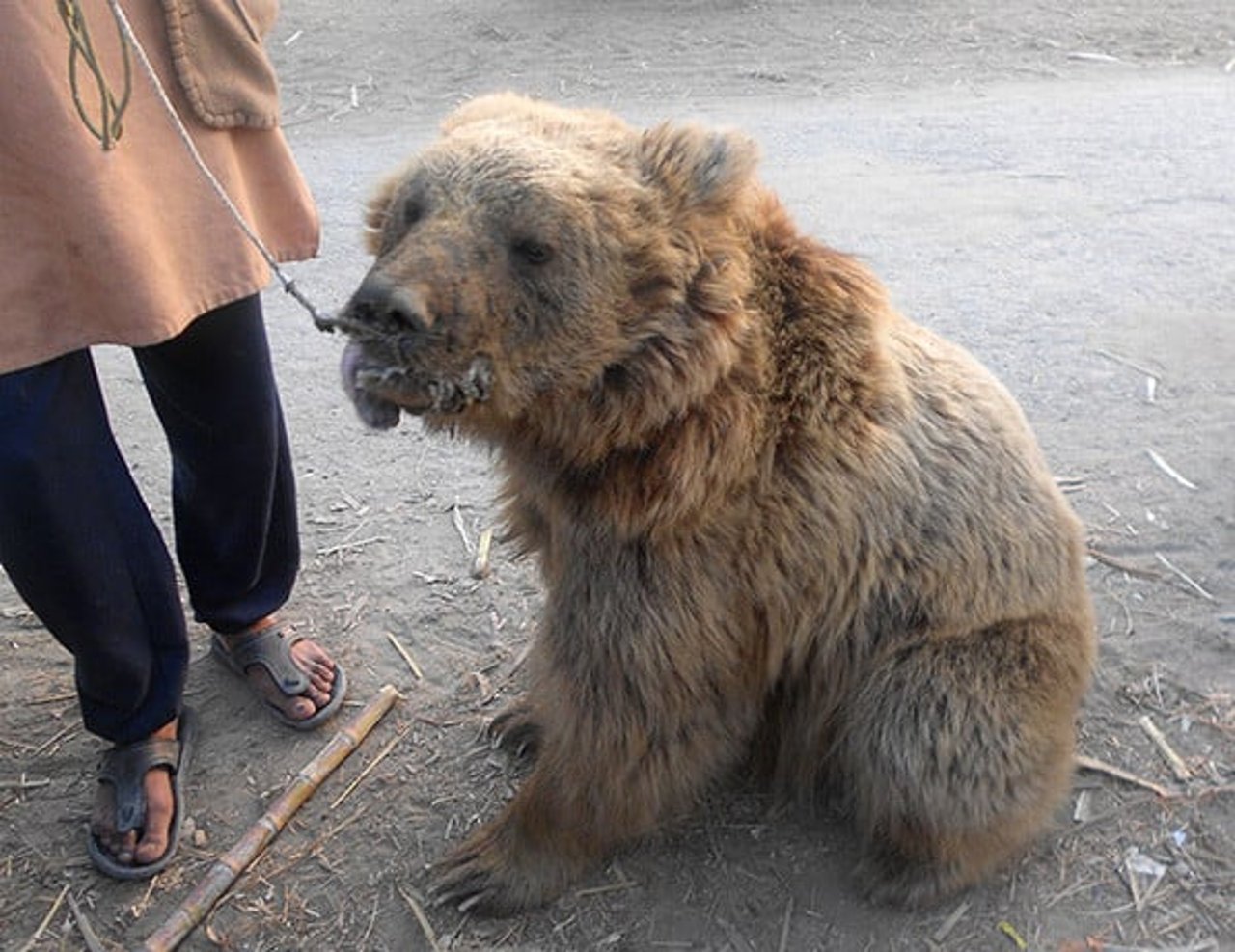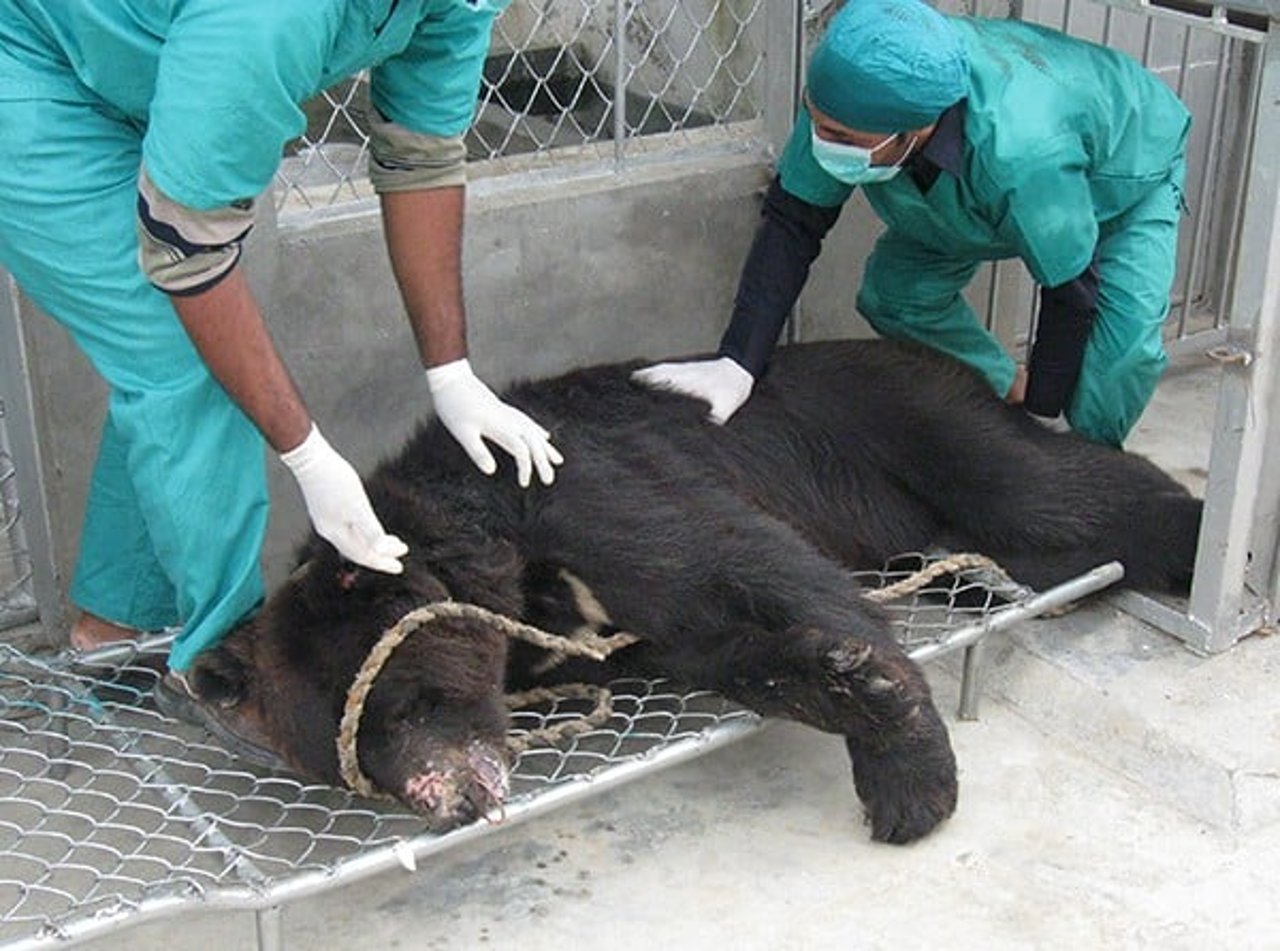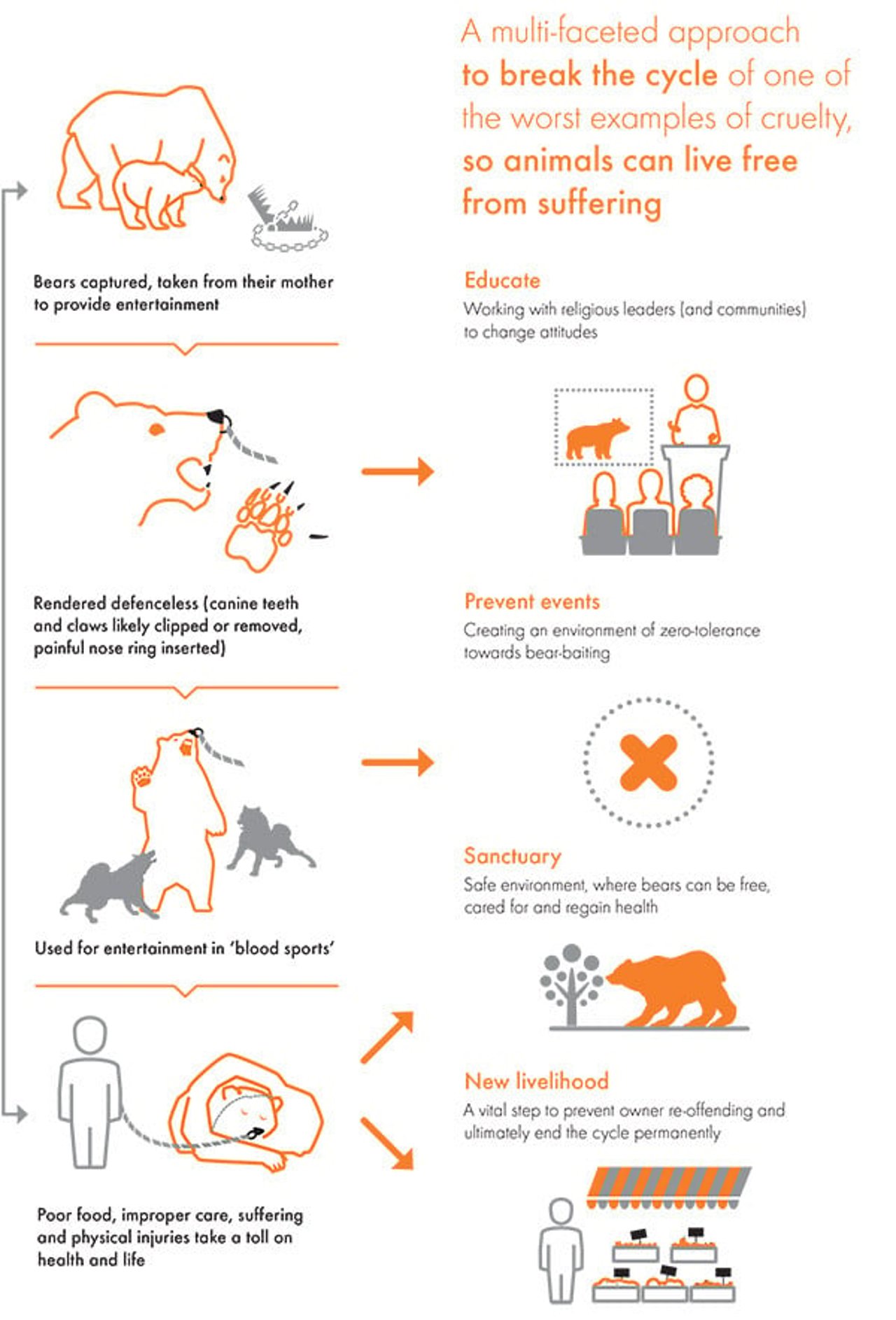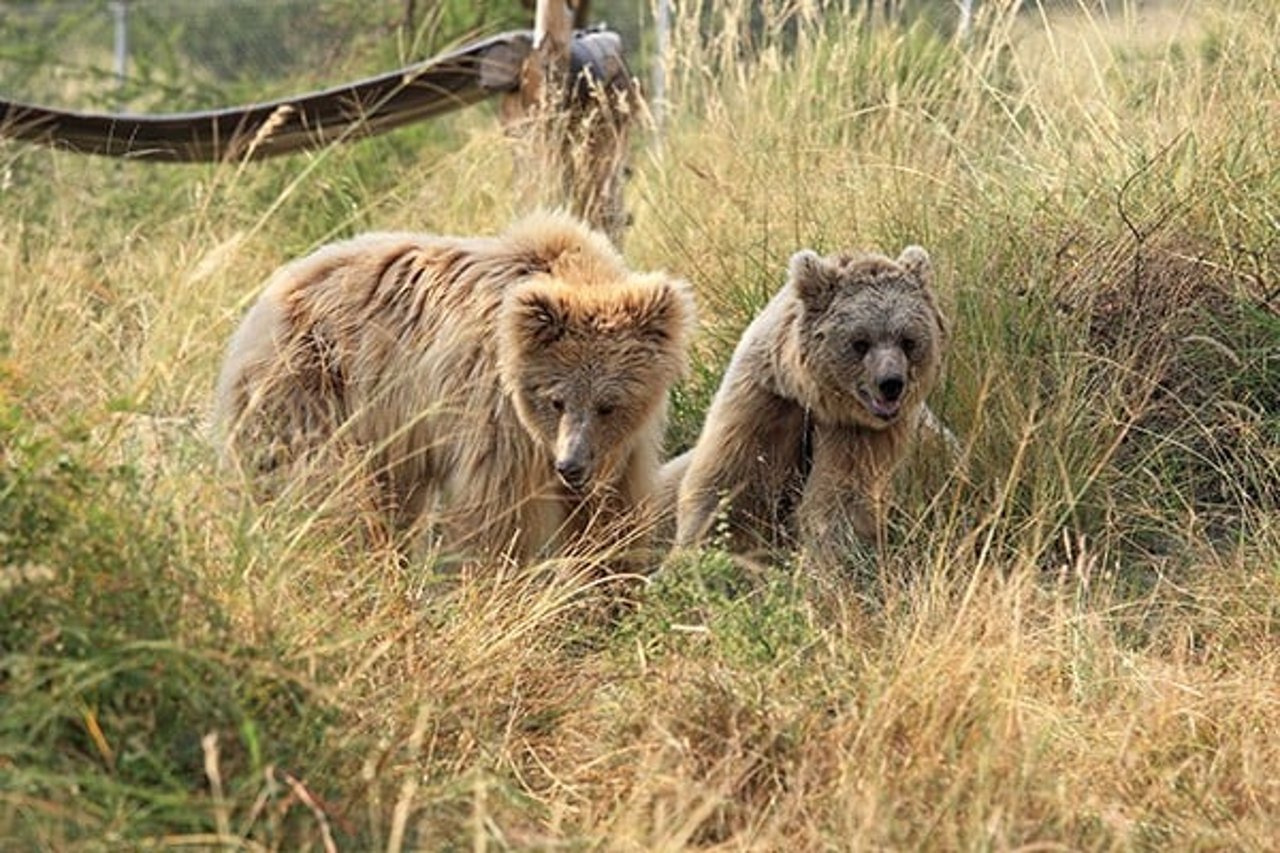
Bear baiting is an inhumane blood “sport” for which bears needlessly endure tremendous suffering. We have a comprehensive approach to saving suffering bears and ending this cruelty for good.
Bears used for bear baiting experience unimaginable pain even before they are forced to fight for their lives. Their canine teeth broken or removed. Their muzzles are painfully pierced with nose rings. Their claws are removed or blunted. And this is just the beginning.
At organized events, crowds gather to watch as a bear must battle for his life against aggressive and specially trained dogs. Tethered to a pole, he suffers terrible injuries with each attempt to defend himself.
And he is brought out to fight up to three times a day. But it doesn’t have to be this way.
Ending bear baiting won’t be easy, but we have a comprehensive approach to saving suffering bears and ending this “sport” for good.
Preventing events
By decreasing the number of events year over year and creating a zero-tolerance approach to bear baiting, we aim to phase out this cruel form of entertainment once and for all.
With our partner group Bioresource Research Centre (BRC), we are bringing bear baiting to the forefront and making government officials sensitive to the issue. We also provide authorities up-to-date information so they have a better picture of the current scope of the problem.
Educating for sustained results
We aim to increase community support for an end to bear baiting by presenting audiences with compelling information about the ethical and animal welfare implications of this tradition.
Additionally, we’ve enlisted the support of religious leaders to help spread our message, awakening more people to the cruelty involved in bear baiting.
Events often take place on land owned by powerful and influential landlords, so gaining their support is of great strategic importance. A core team of roughly 20 landlords who have already pledged to stop hosting events are now using their influence to actively encourage other landlords and bear owners to follow suit.
Encouraging the surrender of bears
We negotiate tirelessly with bears’ owners, encouraging the surrender of badly abused animals; and by supporting the owners as well as the bears, we can prevent repeat offending.
In exchange for surrendering their bear, each former bear owner is provided with support to establish an alternative, cruelty-free livelihood. These measures assist the former owners so they are not reduced to re-offending as a means of income. For example, BRC has helped previous bear owners open general stores as a means to support themselves and their families.
As a sign of their commitment to a new cruelty-free, alternative livelihood, each former owner must sign an irrevocable agreement that they will never purchase another bear. This ensures that they do not simply replace surrendered bears with new bears, and is a vital part of securing a permanent end to the tradition of bear baiting in Pakistan.
Providing sanctuary
We are dedicated to ending the suffering and exploitation of bears for entertainment and giving rescued bears a life free from cruelty. But bears that have been subjected to the cruelty of baiting events are simply too traumatized to be returned to the wild.
Years of chronic stress, unhealthy diets, and no veterinary treatment have all taken their toll. Rescuing these bears and providing them with the best possible care for the rest of their lives is our highest priority. With our local partner, we fund a sanctuary that provides a safe haven for all rescued baiting bears in Pakistan equipped with the highest standards of welfare.
Help from supporters like you
We have drastically reduced the number of public events being held, but we need your support to stop these practices altogether. Please help us rescue the remaining bears so they, too, can be protected from this terrible cruelty.
Images courtesy of BRC
Years of chronic stress, unhealthy diets, and no veterinary treatment have all taken their toll.



